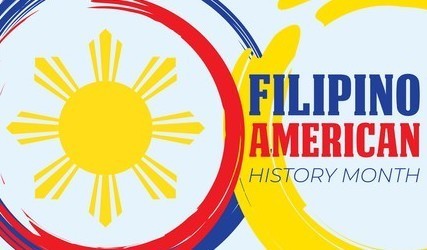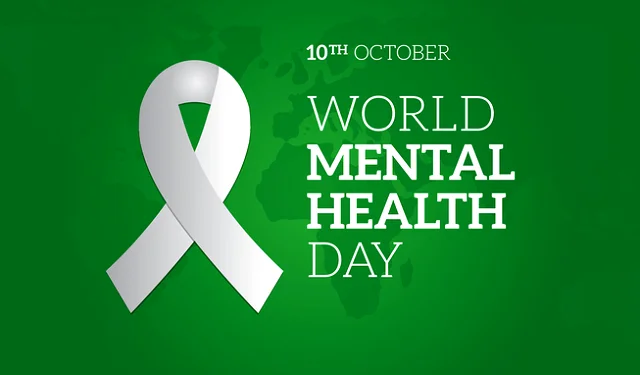What day/month is it?
- Tracy Myers

- Oct 10, 2022
- 6 min read
Happy Indigenous Peoples’ Day!
Happy Mental Health Day!
Happy Filipinx Heritage Month! Happy Latinx Heritage Month!
I also recently learned the City of Redmond, WA proclaimed October the National Arts & Humanities Month.
Every single reason, purpose, and focus of these celebratory proclamations and days is great, amazing, and needed in our country and across the world. They are designated and intentional opportunities to raise awareness and celebrate the history, contributions, culture, and needs of different communities and identities. While I fundamentally understand this, it’s hard not to feel the tension of competing platforms. Specifically for me, it’s not being able to truly participate deeply with any of them, because I want to participate in all of them. It also is incredibly hard to focus on digging deep when I’m inundated with so much media and events to choose from. In order for me to better connect with these celebrations, I needed to understand their origins.
I’m writing this not from the perspective of having an answer, or making suggestions because quite frankly, I’m still confused. So let me share what I’ve learned:
From the Filipino American National Historical Society (FANHS), “The celebration of Filipino American History Month in October commemorates the first recorded presence of Filipinos in the continental United States, which occurred on October 18, 1587, when “Luzones Indios” came ashore from the Spanish galleon Nuestra Senora de Esperanza and landed at what is now Morro Bay, California. In 2009, U.S. Congress recognized October as Filipino American History Month in the United States. Various states, counties, and cities in the U.S. have established proclamations and resolutions declaring observance of Filipino American History Month. The late Dr. Fred Cordova, along with his wife, FANHS Founder Dr. Dorothy Laigo Cordova, first introduced October as Filipino American History Month in 1992 with a resolution from the FANHS National Board of Trustees.”
435 years ago, Filipinos were brought to these shores.
Filipino American History Month has been celebrated for 30 years. I am 40 (so for most of my life). Have you ever celebrated it? Has your organization or school ever celebrated it? For me, that answer is a hard NO.
Now let us compare that to the history of Indigenous People’s Day - previously Christopher Columbus Day.
From the Library of Congress, “The first recorded celebration of Columbus Day in the United States took place on October 12, 1792. Organized by the Society of St. Tammany, also known as the Columbian Order, it commemorated the 300th anniversary of Columbus’ landing. The 400th anniversary of the event inspired the first official Columbus Day holiday in the United States. President Benjamin Harrison issued a proclamation in 1892, “recommending to the people the observance in all their localities of the 400th anniversary of the discovery of America…”
In reading other multiple articles, it was also considered Italian Heritage day and Italians celebrated their culture and identity, for some it specifically affirmed their belonging in the United States.
Now regarding replacing Columbus Day with Indigenous Peoples’ Day, NPR reported, “The idea was first proposed by Indigenous peoples at a United Nations conference in 1977 held to address discrimination against Natives. But South Dakota became the first state to replace Columbus Day with Indigenous Peoples Day in 1989, officially celebrating it the following year.
President Biden issued a proclamation this year as well as in 2021. 10 states and Washington, D.C. recognize Indigenous Peoples’ Day along with more than 100 cities across the country.
Keep in mind, soon (November), we will be celebrating National Native American Heritage Month. We also recently (September 30th) celebrated Orange Shirt Day, National Day for Truth and Reconciliation, a Canadian statutory holiday that was first commemorated in 2013 to give recognition and awareness to the harm the Indian boarding schools had on Native peoples.
Now on to Hispanic Heritage Month. Which I was so thoroughly confused as to why it straddled September and October, unlike other months. There is a reason.
From hispanicheritagemonth.gov, “The observation started in 1968 as Hispanic Heritage Week under President Lyndon Johnson and was expanded by President Ronald Reagan in 1988 to cover a 30-day period starting on September 15 and ending on October 15. It was enacted into law on August 17, 1988, on the approval of Public Law 100-402. The day of September 15 is significant because it is the anniversary of independence for Latin American countries Costa Rica, El Salvador, Guatemala, Honduras and Nicaragua. In addition, Mexico and Chile celebrate their independence days on September 16 and September18, respectively. Also, Columbus Day or Día de la Raza, which is October 12, falls within this 30 day period.”
So to be clear, these independence days are celebrating independence from Spain. At some point, our presidents commemorated celebrating these countries' independence from Spain, while continuing to celebrate the day Spain invaded these lands with Columbus Day (which is still a Federal Holiday).
Now when I saw a post for World Mental Health Day, I didn’t know what to do with myself, because of course - OUR MENTAL HEALTH is incredibly important. Why do we need to celebrate it on the same day as Indigenous Peoples' Day? Well, according to The World Health Federation for Mental Health, “World Mental Health Day was observed for the first time on 10 October 1992. The day, officially commemorated every year on October 10th, and aims to raise awareness in the global community about the critical mental health agendas – with a unifying voice through collaboration with various partners – to take action and to create lasting change.”
Did the founders of this day know the history of Indigenous Peoples' Day? Did they care once they became aware? I wonder about these things. In working in school districts, there is much thought put into the school calendar. They are really meticulous with when events will be held, requiring community input and then a final vote by the school board. Were there considerations made by the various entities that advocated, planned, and implemented these months and days? Did they ever wonder if it would take away from these other commemoration events? When cities commemorate their own special days, do they ask themselves if they’re taking the spotlight away from some of their citizens?
These are a lot of questions. When we look at the timeline and consider the origins, there absolutely was an order with rhyme and reason for selecting this time of year for these special days. What maybe was not present, was considering the impacts on our future generations to engage meaningfully. At our dinner table tonight with our children, they looked at me with confused faces and said, “Why are these happening in the same month?” My son knew about Indigenous Peoples' Day because a Native friend brought it up. My daughter knew about Filipinx Month because we attended an event together. She knew it was Latinx month because of friends and social media. None of these days were brought up in their schools intentionally with their teachers or at their Homecoming assembly. My attempt to review this information with them at dinner did not go well as far as them being able to follow the information. Which is understandable. They should have the opportunity to truly learn about the history and celebrate Indigenous, Latinx, and Filipinx peoples and culture more meaningfully. They also deserve and should get intentional lessons on awareness of mental health.
This is a lot. This can get confusing. What I do feel at the end of the journey of google diving in and out of pages to learn -- is an urge to continue learning and to continue advocating for my children to have the opportunity to learn as well. I cannot wait for my children to take an Ethnic Studies class that may or may not cover Filipinx history, a part of their ancestral story. So, my next step is to continue investigating what our school district is doing to provide spaces for this learning. I would love to hear from you what this article may have brought up for you. Is there something you’re considering doing? Am I the only one struggling to navigate these various celebrations?
For those that need a visual, here’s the timeline:
1792 - Columbus Day commemorated - 300 years post-arrival
1968 - Hispanic Heritage Week
1988 - Hispanic Heritage Month
1989 - Indigenous Peoples’ Day - Since Time Immemorial
1992 - Filipino American History Month - 405 years post-arrival
1992 - The World Mental Health Day












Comments